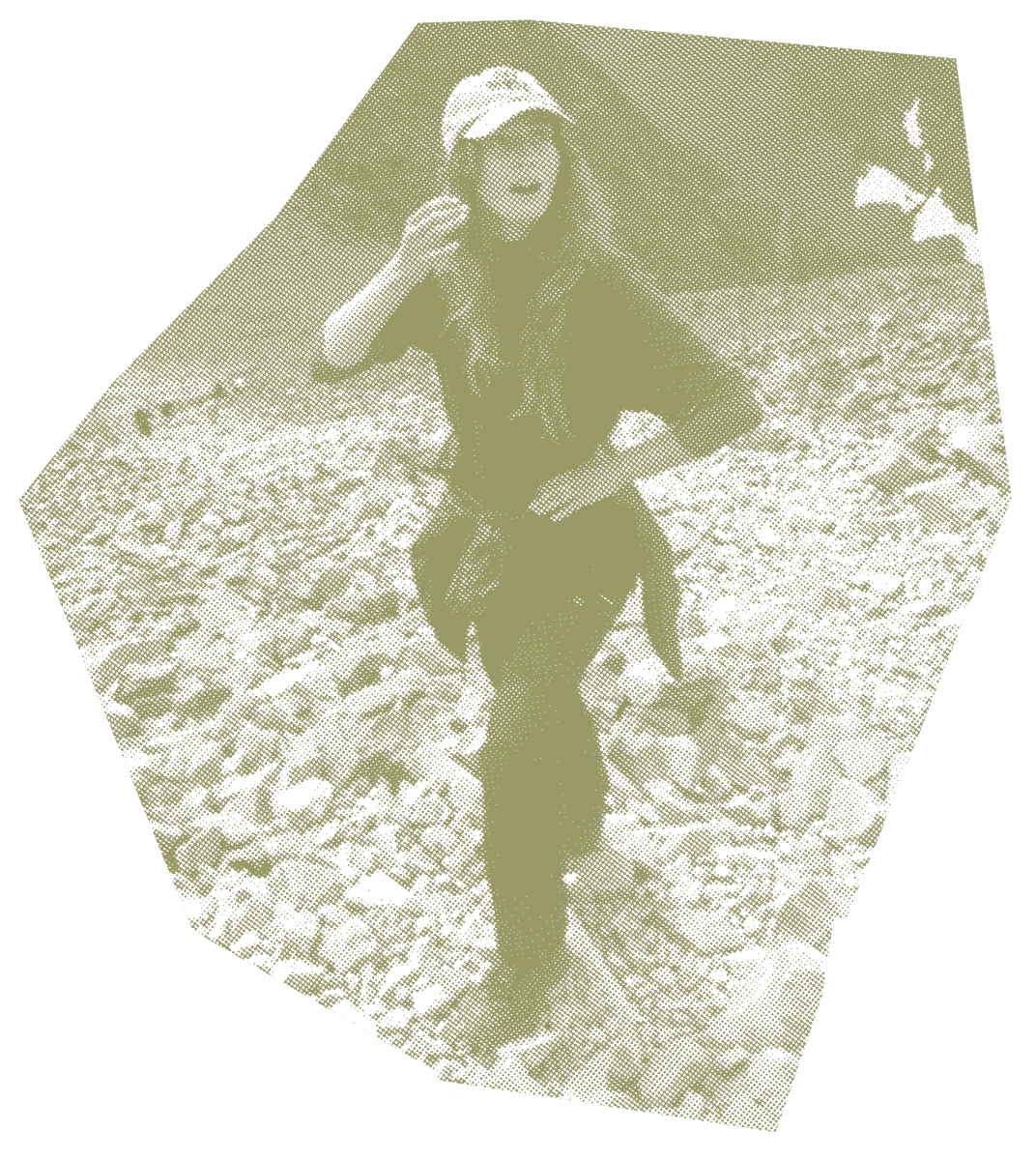Text by: Cassidy McKenna
Glacial gossip
On it’s completion in December 1938, just before the outbreak of war, a telephone directory and coins of the realm were placed inside the model as a kind of time capsule. Thus, on the eve of host-ilities, the placid whale became a memorial to a brief peace, a cetacean cenotaph
Philip Hoare in Leviathan or, The Whale (2008) on the blue whale model in the Whale Hall, The Natural History Museum, London
The worry tasted blue,
A gorgeous worry.
In the end that worry is all I want,
Aquamarines spread on toast, dripped into my ears
From ‘Joan of Arc’, Rebecca Tamás (2017)
You probably shouldn’t hear a glacier sing. If you do, it may sound appropriate for a Disney soundtrack, like the one with the same name for how you might wish the water would rather stay. A crystalline tinkling, high and bright, sometimes pleasing, certainly, almost something playful. A request, maybe, on the part of the mountain, to pay attention. A celebration, instead, of the liquid that’s been set free.
It’s only an assumption, really, that something frozen wants to remain that way.
![]()
The southern glacial tip of Kebnekaise, heretofore the highest point in Sweden, has shrunk by close to a metre and a half this year. That’s almost as tall as me. She’s shorter than her sibling now, squat to the Northern tip. Demoted, in a way, to second best. All the headlines assure us that this is a tragedy. I wonder if she is embarrassed by this.
![Kebnekaise size decreasing 1950-2020]() Her name is an inaccurately adapted Sami term, a reference to a kettle-shaped peak she never had. It’s likely a case of mistaken identity, the first mountaineers assuming that the local people’s most identified-with monument must necessarily be the largest one. They took the title from her neighbour and put it on her instead. Maybe she doesn’t even realise that she’s the one being talked about.
Her name is an inaccurately adapted Sami term, a reference to a kettle-shaped peak she never had. It’s likely a case of mistaken identity, the first mountaineers assuming that the local people’s most identified-with monument must necessarily be the largest one. They took the title from her neighbour and put it on her instead. Maybe she doesn’t even realise that she’s the one being talked about.
What’s in the impulse to measure mountains? Surely there is no one who still believes that a lack of data is the explanation for inadequate climate action. In a mimicking of medical examinations – height taken, body palpated (by boots), liquids extracted for analysis – is anyone truly hoping to find an application point for preventative medicine. As if a planetary wide problem of out of control warming could somehow be mitigated with a singular surgical intervention, or a specific pill.
As much as for the rigour of diagnostics, it may be the placating ritual itself of a medical asssessment that provides much of it's healing value. Here is someone vulnerably prostrate, in front of someone who can discern what has gone awry. There’s something a bit BDSM about the doctoral examination, the domination of the practitioner, the submission of the patient, one who relies upon another’s navigation to guide them through hidden nooks and crannies, the wilds of themselves.1 To submit to an examination. To summit a mountain. Does she really need our guidance. Did we ask this glacier for her consent.
I didn’t and I climbed her anyway. Against a flat white sky, after four hours walking ever upwards in an atmosphere of only her angular rocks offspring. There she was, also white but distinctly undulating, finally an organic thing, in a landscape that had otherwise seemed to have transcended all decay. A ridge modestly softened by permafrost. A protruding peak that allowed for death drops on either side; slashed ice; an under layer as milky blue as cataracts.
![]()
![]()
From afar her back looked pockmarked, black lines scarred down her centre. They could have been the debris held in place where two glacial flows meet, a demarcation of space, as the inner rings of a tree are a record of time. Up close it was clear they were actually the ascending tracks of people. Hiking pole-stabilised, polyester-clad, made warm in the close-to-freezing temperatures by clothing that would certainly outlive them, that might outlive the mountain herself.
A glacier’s lifespan is written in lichen. Slow growing mapping lichens bloom their lives in the till, spreading out on pieces of stone that were previously but are no longer reached by the seasonal solidifying of a glacial mass. Given their sedate speed, these lichen can be read as an indicator of retreat, of where ice has resolutely chosen to no longer linger, an outline of its shrinking shape. An alga-fungal cartographic clock. A measuring tool of diminishment.
Things I saw left on the top of Kebnekaise: a smashed watermelon. Toilet paper streams. Multiple banana skins that will take decades to decompose in subzero. An abandoned bird’s nest. A Swedish flag. May we also be quantified by what we leave behind. The pouches that held dehydrated hiking meals, the camping cap that was snatched from the hand by a river current - rather than revealing a retraction, it will show an overflow.
Upon reaching her edges I cry almost immediately, object out loud to the uncaring way others are crawling flea-like upon her edges. Why is anyone allowed up here at all, I protest, to these thin-aired places which are so obviously not meant for us. Absent of food we could eat, colour spectrums we can recognise, temperatures we could withstand for longer than the few moments it takes to take the selfie, catch your breath, see the view. I watch two women enthusiastically whip out black bin bags from their backpacks, place plastic-wrapped bums onto further plastic surfaces and slide, gleefully, down the slope. Micro fragments possibly scattering around them like snowflakes.
I sit on the floor, eat some pasta. I am grateful, I am ashamed, by the convenience of my access, not only to this landscape itself, but to all that allows me to remain at ease within it - the GPS maps and painted trail signs; the wheat grown, milled and packaged much further south; the gas canister bottled on another continent; the gas itself from the undersurface of a different elsewhere, of another wound into the earth’s surface. Then I stand up, and I too take my own step onto the glacier’s surface, leaving a dirty shoe mark on her skin.
![]()
Is there a Chauvo-Feminist equivalent for environmentalists? People who compartmentalise their damage through their verbal expressions of their solidarity, even of their love, all the while still seeking a relationship on terms they themselves choose to dictate. People who pre-assume another’s trauma, who mistake intellectual comprehension for embodied knowing - yes I understand, I know what it's like to shrink, I think, just because I too could wield a measuring stick, when of course I actually have no idea, what it means to be an ancient phenomena now nearing extinction. To know that in your death will rise the vengeance of the seas. To be benevolent, to be amputated, to be leaking everywhere.2
Here I am, in my nonbiodegradable rainproof jacket, with my cellophane wrapped protein bar, with my heated desire to be in the high mountains, to touch whatever I want to touch.
To stand on top of a glacier is to feel like coming face to face with a blue whale. You just know someone’s in there, intone the repentant Seaworld orca trainers, damp-eyed, twitching in their interview seats.3 Someone else majestic, yet somehow naive, someone better meant for depths, to spaces humans are similarly not supposed to venture. Another suborder of species with which being able to reach out to has been misinterpreted as being able to understand. Humpbacks have all the mouth equipment to speak rhythmically yet they elect to use rhyming refrains. A poetry we cannot evolutionarily justify, perhaps one that’s intentionally impenetrable to that comprehension.4
Sweden has its own echolocating marine mammal, the critically endangered, endemic Baltic Proper Harbour Porpoise. They talk out to their environment and in soundwaves the environment talks right back to them. Is the glacier echolocating? The melting meant as a message, a request for a returning tide of explanation, or a demand for apology. Or is she resigned to her fate, making her call more like the monotonous mutterings of captive marine animals, who know there is no one around to understand them, but can’t help but call out anyway.
The Baltic porpoise’s capacity to communicate can drop by ninety percent when a wind farm is built in their habitat, the cacophony of construction a type of species-wide silencing.5 When so-called green energy is labelled as something forever renewable, is it failing to name what is sacrificed in that quest for eternity. If the whole planet is viewed as a single organism, is there a risk of not noticing some of its particularity; the shrinking of one mountaintop is compared to another’s, as though the loss is not of an individual, as though the whale in the swimming pool is protected by the quota of the ones left still in the sea. The last Swedish dolphin entertainment show was only closed in 2022.6
The song of a blue whale is significantly lower in decibels than any surrounding creature's speaking. Their sounds can reach undisturbed across whole oceans. In this way, the glacier feels like it's apposite, a melody barely audible underneath the exhales of relief, the bubbling articulations of self-congratulation, of the submitting crowds upon her. I don’t know if anyone else noticed it. It was only in the moment where I was temporarily alone upon her apex that I was sure that I could hear it, before a man came striding towards me, holding in his grip yet another national flag.
Her murmur sounded like melancholy, but then I’ve long been unable to stay in a landscape without already mourning it. Beauty is becoming increasingly more challenging that ugliness for the greater loss it anticipates.7 I know that if I had been a coloniser I too would have tried to take the fire from the indigenous steward’s hands as they sought to replenish the soil by burning, just as I now look upon a mountain and believe I know the way she wants to be treated, the way she would want to be touched. I am terrified of destruction, not willing to accept that sometimes vengeance is a form of revolution, will hate the floodwaters when they come - though I understand now that though it is polyvocal in its expressions, water calls to water everywhere.8
Maybe to be summited could be, for her, to be understood. Maybe to be analysed is to be humiliated, misnamed to be demeaned. There she is, sending an auditory message like a blaze on a medieval hilltop beacon that could indeed be a lament. Or it might be a warning that her diminutive size is not in fact a reduction of her power. Or it might just be a whimper, an escaping expression of fear. It might be a performance. It might be a poem, or a song.
If a glacier is singing, and no one is quiet enough to understand it, would she still be melting?
Footnotes:
It’s only an assumption, really, that something frozen wants to remain that way.
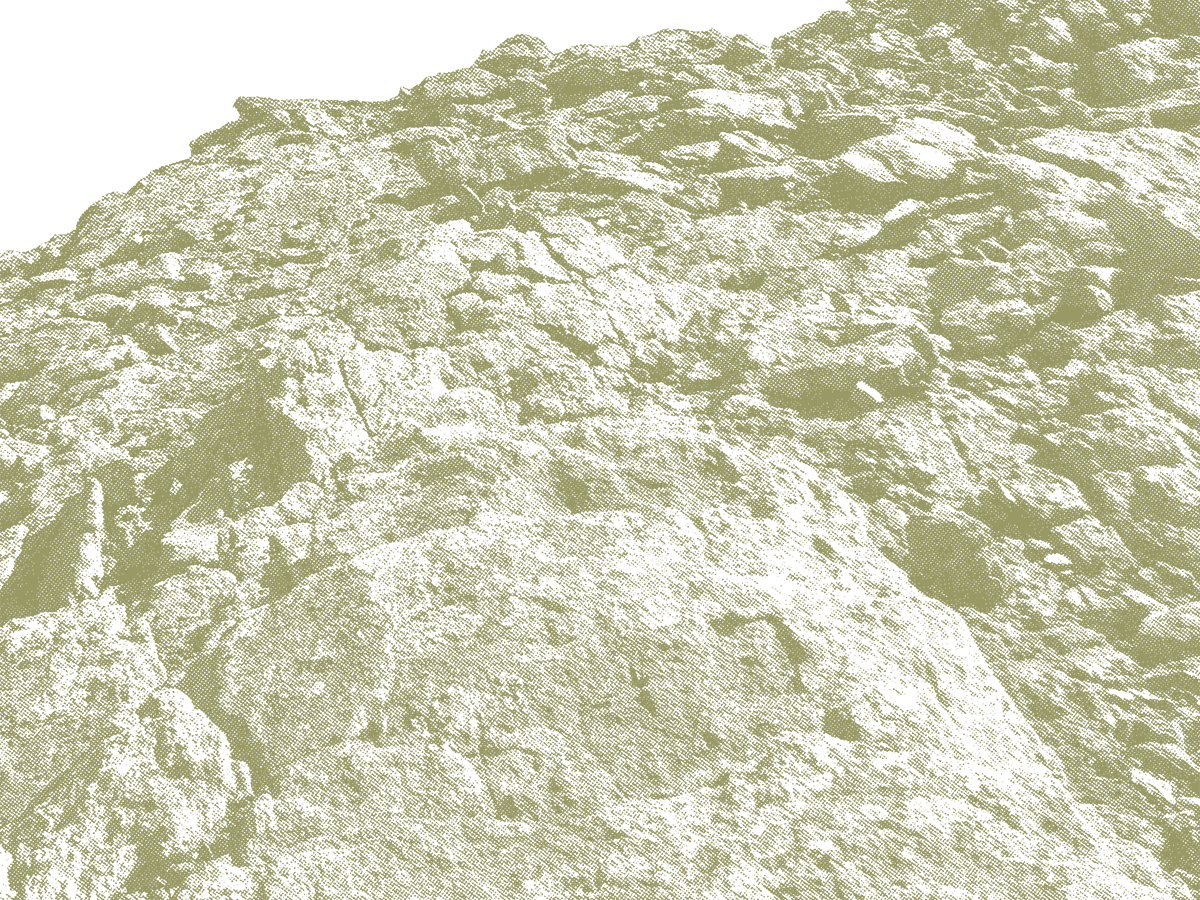
The southern glacial tip of Kebnekaise, heretofore the highest point in Sweden, has shrunk by close to a metre and a half this year. That’s almost as tall as me. She’s shorter than her sibling now, squat to the Northern tip. Demoted, in a way, to second best. All the headlines assure us that this is a tragedy. I wonder if she is embarrassed by this.

What’s in the impulse to measure mountains? Surely there is no one who still believes that a lack of data is the explanation for inadequate climate action. In a mimicking of medical examinations – height taken, body palpated (by boots), liquids extracted for analysis – is anyone truly hoping to find an application point for preventative medicine. As if a planetary wide problem of out of control warming could somehow be mitigated with a singular surgical intervention, or a specific pill.
As much as for the rigour of diagnostics, it may be the placating ritual itself of a medical asssessment that provides much of it's healing value. Here is someone vulnerably prostrate, in front of someone who can discern what has gone awry. There’s something a bit BDSM about the doctoral examination, the domination of the practitioner, the submission of the patient, one who relies upon another’s navigation to guide them through hidden nooks and crannies, the wilds of themselves.1 To submit to an examination. To summit a mountain. Does she really need our guidance. Did we ask this glacier for her consent.
I didn’t and I climbed her anyway. Against a flat white sky, after four hours walking ever upwards in an atmosphere of only her angular rocks offspring. There she was, also white but distinctly undulating, finally an organic thing, in a landscape that had otherwise seemed to have transcended all decay. A ridge modestly softened by permafrost. A protruding peak that allowed for death drops on either side; slashed ice; an under layer as milky blue as cataracts.

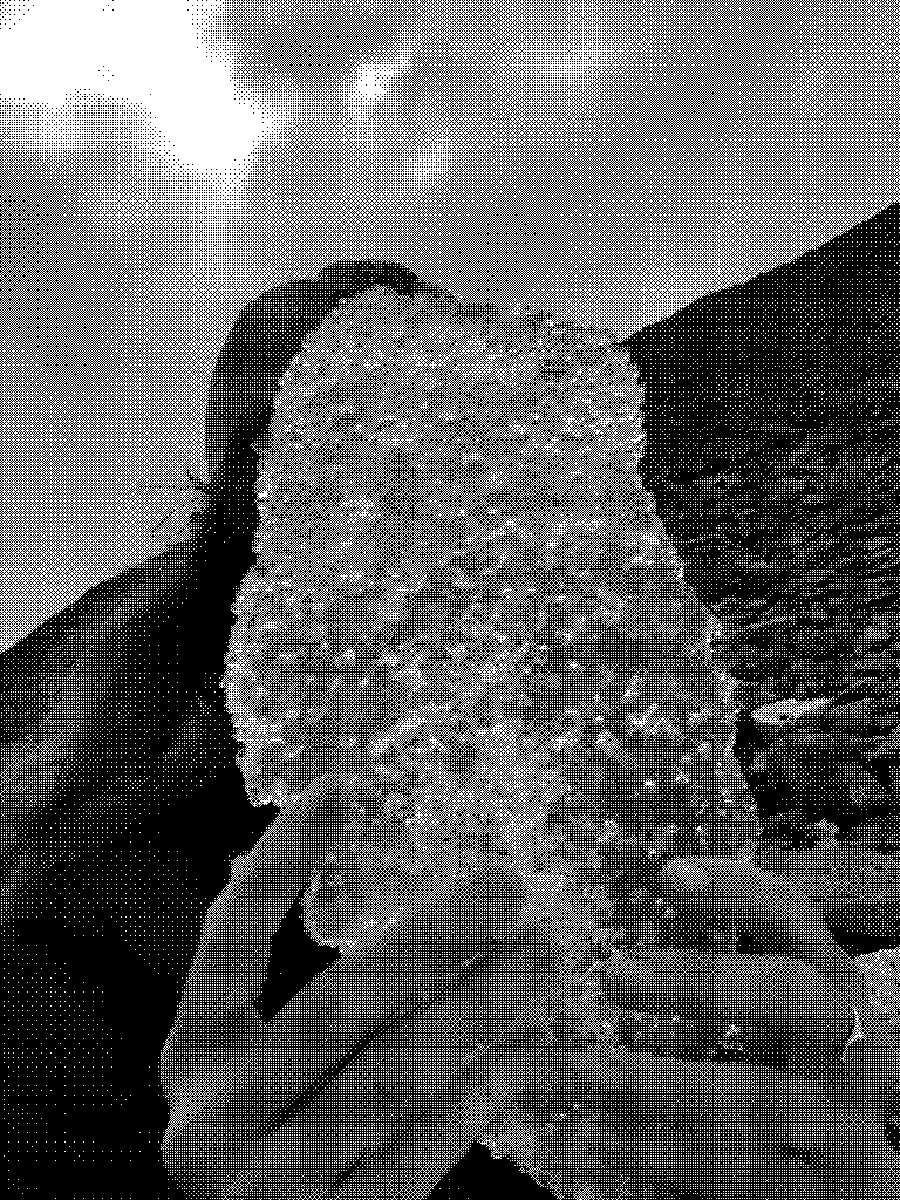
From afar her back looked pockmarked, black lines scarred down her centre. They could have been the debris held in place where two glacial flows meet, a demarcation of space, as the inner rings of a tree are a record of time. Up close it was clear they were actually the ascending tracks of people. Hiking pole-stabilised, polyester-clad, made warm in the close-to-freezing temperatures by clothing that would certainly outlive them, that might outlive the mountain herself.
A glacier’s lifespan is written in lichen. Slow growing mapping lichens bloom their lives in the till, spreading out on pieces of stone that were previously but are no longer reached by the seasonal solidifying of a glacial mass. Given their sedate speed, these lichen can be read as an indicator of retreat, of where ice has resolutely chosen to no longer linger, an outline of its shrinking shape. An alga-fungal cartographic clock. A measuring tool of diminishment.
Things I saw left on the top of Kebnekaise: a smashed watermelon. Toilet paper streams. Multiple banana skins that will take decades to decompose in subzero. An abandoned bird’s nest. A Swedish flag. May we also be quantified by what we leave behind. The pouches that held dehydrated hiking meals, the camping cap that was snatched from the hand by a river current - rather than revealing a retraction, it will show an overflow.
Upon reaching her edges I cry almost immediately, object out loud to the uncaring way others are crawling flea-like upon her edges. Why is anyone allowed up here at all, I protest, to these thin-aired places which are so obviously not meant for us. Absent of food we could eat, colour spectrums we can recognise, temperatures we could withstand for longer than the few moments it takes to take the selfie, catch your breath, see the view. I watch two women enthusiastically whip out black bin bags from their backpacks, place plastic-wrapped bums onto further plastic surfaces and slide, gleefully, down the slope. Micro fragments possibly scattering around them like snowflakes.
I sit on the floor, eat some pasta. I am grateful, I am ashamed, by the convenience of my access, not only to this landscape itself, but to all that allows me to remain at ease within it - the GPS maps and painted trail signs; the wheat grown, milled and packaged much further south; the gas canister bottled on another continent; the gas itself from the undersurface of a different elsewhere, of another wound into the earth’s surface. Then I stand up, and I too take my own step onto the glacier’s surface, leaving a dirty shoe mark on her skin.
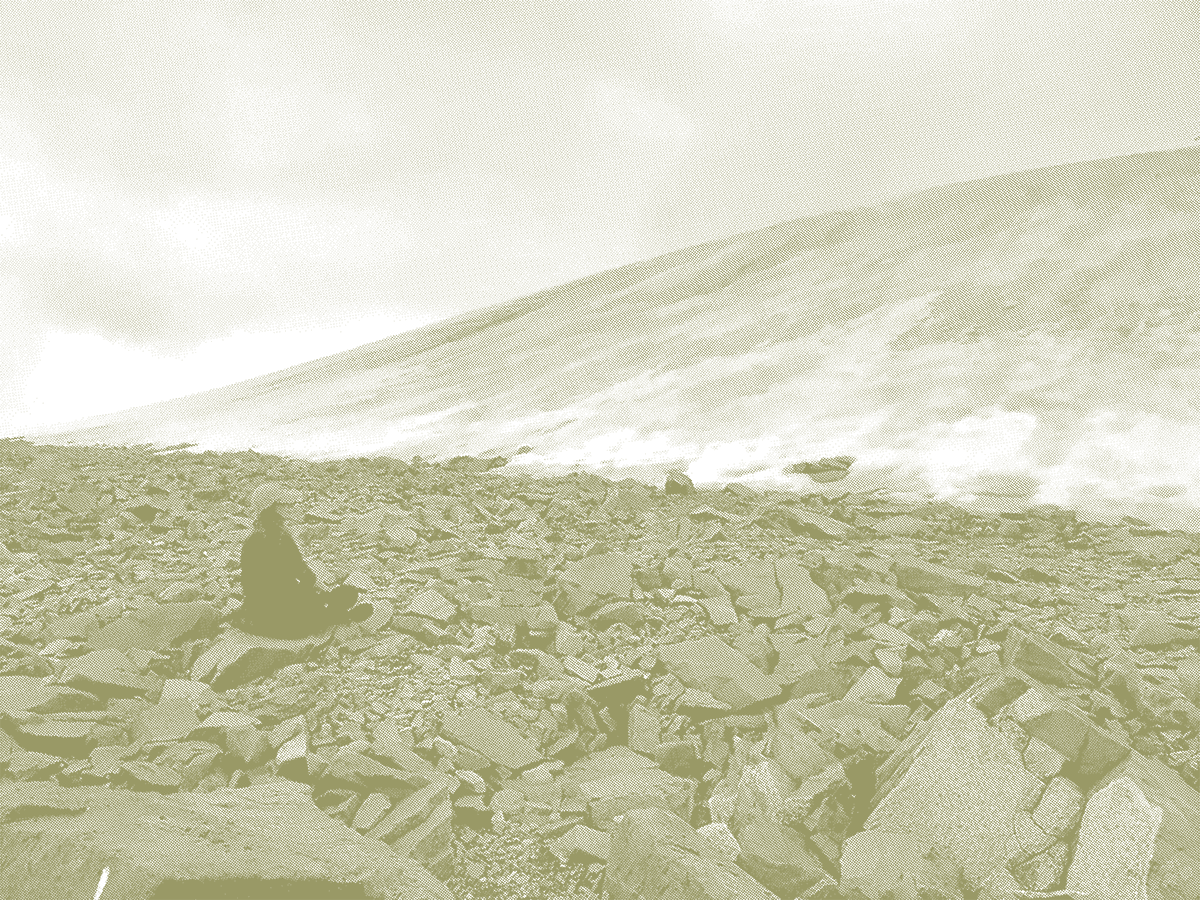
Is there a Chauvo-Feminist equivalent for environmentalists? People who compartmentalise their damage through their verbal expressions of their solidarity, even of their love, all the while still seeking a relationship on terms they themselves choose to dictate. People who pre-assume another’s trauma, who mistake intellectual comprehension for embodied knowing - yes I understand, I know what it's like to shrink, I think, just because I too could wield a measuring stick, when of course I actually have no idea, what it means to be an ancient phenomena now nearing extinction. To know that in your death will rise the vengeance of the seas. To be benevolent, to be amputated, to be leaking everywhere.2
Here I am, in my nonbiodegradable rainproof jacket, with my cellophane wrapped protein bar, with my heated desire to be in the high mountains, to touch whatever I want to touch.
To stand on top of a glacier is to feel like coming face to face with a blue whale. You just know someone’s in there, intone the repentant Seaworld orca trainers, damp-eyed, twitching in their interview seats.3 Someone else majestic, yet somehow naive, someone better meant for depths, to spaces humans are similarly not supposed to venture. Another suborder of species with which being able to reach out to has been misinterpreted as being able to understand. Humpbacks have all the mouth equipment to speak rhythmically yet they elect to use rhyming refrains. A poetry we cannot evolutionarily justify, perhaps one that’s intentionally impenetrable to that comprehension.4
Sweden has its own echolocating marine mammal, the critically endangered, endemic Baltic Proper Harbour Porpoise. They talk out to their environment and in soundwaves the environment talks right back to them. Is the glacier echolocating? The melting meant as a message, a request for a returning tide of explanation, or a demand for apology. Or is she resigned to her fate, making her call more like the monotonous mutterings of captive marine animals, who know there is no one around to understand them, but can’t help but call out anyway.
The Baltic porpoise’s capacity to communicate can drop by ninety percent when a wind farm is built in their habitat, the cacophony of construction a type of species-wide silencing.5 When so-called green energy is labelled as something forever renewable, is it failing to name what is sacrificed in that quest for eternity. If the whole planet is viewed as a single organism, is there a risk of not noticing some of its particularity; the shrinking of one mountaintop is compared to another’s, as though the loss is not of an individual, as though the whale in the swimming pool is protected by the quota of the ones left still in the sea. The last Swedish dolphin entertainment show was only closed in 2022.6
The song of a blue whale is significantly lower in decibels than any surrounding creature's speaking. Their sounds can reach undisturbed across whole oceans. In this way, the glacier feels like it's apposite, a melody barely audible underneath the exhales of relief, the bubbling articulations of self-congratulation, of the submitting crowds upon her. I don’t know if anyone else noticed it. It was only in the moment where I was temporarily alone upon her apex that I was sure that I could hear it, before a man came striding towards me, holding in his grip yet another national flag.
Her murmur sounded like melancholy, but then I’ve long been unable to stay in a landscape without already mourning it. Beauty is becoming increasingly more challenging that ugliness for the greater loss it anticipates.7 I know that if I had been a coloniser I too would have tried to take the fire from the indigenous steward’s hands as they sought to replenish the soil by burning, just as I now look upon a mountain and believe I know the way she wants to be treated, the way she would want to be touched. I am terrified of destruction, not willing to accept that sometimes vengeance is a form of revolution, will hate the floodwaters when they come - though I understand now that though it is polyvocal in its expressions, water calls to water everywhere.8
Maybe to be summited could be, for her, to be understood. Maybe to be analysed is to be humiliated, misnamed to be demeaned. There she is, sending an auditory message like a blaze on a medieval hilltop beacon that could indeed be a lament. Or it might be a warning that her diminutive size is not in fact a reduction of her power. Or it might just be a whimper, an escaping expression of fear. It might be a performance. It might be a poem, or a song.
If a glacier is singing, and no one is quiet enough to understand it, would she still be melting?
***
Footnotes:
1) For an analysis of the dominant-submissive rituals of allopathic medical care, and their dubious diagnostic value, see Barbara Ehrenreich, Natural Causes: Life, Death and the Illusion of Control
2) Sam Mills coined this term in her book Chauvo-Feminism: On Sex, Power and #MeToo. I was introduced to the concept by Lucia Obsorone-Crowley in her book My Body Keeps Your Secrets
3) Blackfish (2013)
4) Richard Lou, Last Child in the Woods: Saving Our Children from Nature-Deficit Disorder
5) See Jacob Carstensen and Jonas Teilmann, ‘Negative long term effects on harbour porpoises from a large scale offshore wind farm in the Baltic - evidence of slow recovery’
6) These ideas are indebted to Alexis Pauline Gumbs and her book Undrowned: Black Feminist Lessons from Marine Mammals
7) See Naomi Klein, This Changes Everything: Capitalism vs. The Climate
8) “Courage calls to courage everywhere” / Gumbs: “all water touches all water everywhere”

